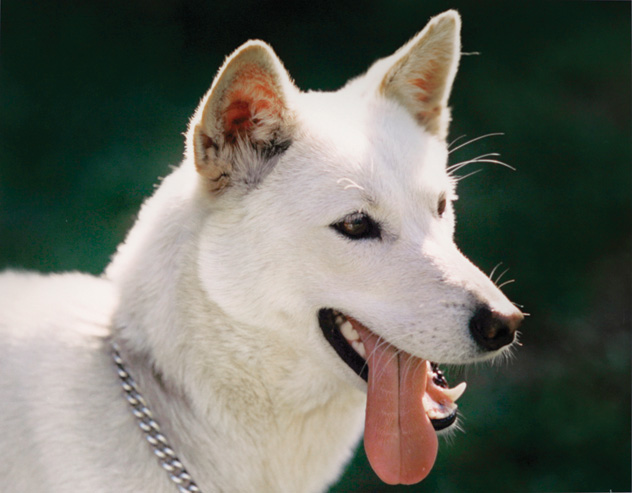by EUGENE YI
It would have made a wonderful story. South Korean Jindo dog enthusiasts donated two puppies to the K-9 division of the Los Angeles Police Department. The LAPD would get some donated assistance, and Korea would promote the Jindo, Natural Monument No. 53, of the country’s 467-strong list of important rocks, plants and animals.
At the same time, should anyone be surprised that it didn’t work out? Jindos lived wild on their eponymous island until the 1960s, and, despite their impressive hunting skills and intelligence, have never been bred to be working dogs. Even the Korean police doesn’t use Jindos.
Standard working breeds like German Shepherds have been selectively bred for centuries, and even then, an average litter might only yield one or two pups that can work. The odds would seem to have been stacked again the Jindos from the start.
[ad#336]
So whose idea was it? According to Chang Y. Lee, then-president of the Korean American Federation of Los Angeles, the South Korea-based Jindo Dog Promotion and Innovation Agency approached him in April 2010 about the possibility of using the dogs for police work. The organization has been working in the past few years to promote the dog as a “world-class animal,” and placement in a police department would help burnish the Jindo’s image, he said.
Lee arranged a meeting with his contacts at the LAPD and the nearby Glendale Police Department. The police expressed reservations, according to Sgt. Doug Roller, the chief trainer for the LAPD. The dogs had a reputation for being independent and aggressive, traits that make for a bad working dog. But the Jindo organization was persistent, offering an all-expense paid trip for two officers to select suitable pups.
“We felt honored that they would entrust us,” said Roller. “I know the breed is very beloved, and we thought it would be a good gesture to give them some advice, take a couple of dogs and see if they work out.”
[ad#336]
Upon arriving in Korea, Roller and Lee said they were surprised to find that there had been no program of selective breeding of the animals at the large facility on Jindo Island. Roller also expressed disappointment that the trainer-to-dog ratio at the Jindo center had hundreds of dogs per person, when, typically, it’s one-to-one.
Puppies were chosen from a local private breeder and brought back to California. The dogs underwent training to be part of the gun detection unit. It wasn’t long before the dogs’ limits were reached, especially in exhibiting the necessary “lasting, hard-driven hunt” drive, according to Roller.
“A dog’s got to … hunt for his reward for maybe a couple of hours,” he said. “When you look at an athlete, there’s guys that do it for fun, and [those] that do it for a living. They’re the best of the best, and we need that level really up there.” He added that the experience was not a judgment on the breed as a whole, but just on these two particular Jindos, named Daehan and Mingook, who have since been placed in private homes in L.A.
Lee said the Jindo center in Korea recently contacted him, offering more puppies, but he declined them until a breeding program had been established.
Hyungwon Kang, who is working on a book about Jindos, said that part of the impracticality of using the dogs as working animals stems from their intense loyalty.
“Jindos build strong attachment to the master,” said Kang, based in Washington, D.C., where he works as a photo editor and photographer for Reuters. “If the handler retires from the service, the dog would be incomplete with a new handler. Such traits need to be bred out for the dog to be functionally competent under multiple handler settings.”
He also underscored that Jindos are natural breeds, while most modern breeds are “manmade.”
The Jindo, as currently constituted, may have been a long shot at best. Still, of the hundreds of breeds of dogs that exist, only a handful work with humans. And Fran Oh, who spearheaded recent efforts to have Jindos registered with the American Kennel Club, felt it was unfair to judge the Jindos too harshly. She asserted the dog is too intelligent to ignore.
She told the story of Junior, a Jindo pup she raised, who had a moment of weakness while it was still being housebroken. Oh went to go to the bathroom to grab a roll of toilet paper when she discovered that puppy already bounding toward her, roll of toilet paper in its mouth. Oh was stunned. “Instead of forcing Jindos to learn, they need to be aware of situations and taught proper ways to react,” she said. “Then I am certain that they could perform beyond our expectation.”
[ad#336]










